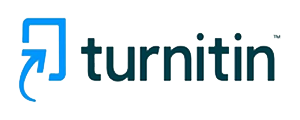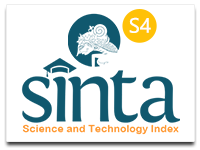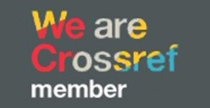About the Journal
Focus and Scope
The focus and scope of DESKOVI is on the topic of design processes, design methodology, design development, design history, design discourse, art criticism, art anthropology, art sociology, creative industry and conceptual culture, education and research in the fields of art, performance, product design, interior design and visual communication design.
Section Policies
Articles
Peer Review Process
- Articles in (submitted) will be selected by the Editorial Board.
- Articles that meet the criteria of standardized writing will be forwarded to the editor while articles that do not meet the criteria standardized writing will be returned to the author without going through a review by the Editor.
- Articles that have been reviewed by the Editor, will be returned to the author if needed repairs. After the authors make improvements in accordance with the input and Editor assessment, the authors should resend (re-submit) and will be re-examined.
- Articles are reviewed by editors anonymously (blind reviews) and were given a recommendation; received / decent fit, rejected / not worth unloading, or accepted with revisions.
- The decision accepted / rejected an article is decided by the Chairman of the Editorial Board (Editor in Chief) based on a recommendation from the Editor of the Editorial Board meeting forum.
Open Access Policy
This journal provides immediate open access to its content on the principle that making research freely available to the public supports a greater global exchange of knowledge.
Publication Frequency
The first published journal in Desember 2018 and regularly published twice per year in June and December
Article Processing Charges (APCs)
Article Processing Charges is free, IDR.0.00. allows people to access the full-text versions of the articles.
Plagiarism Policy
All work in the manuscript should be free of any plagiarism, falsification, fabrications, or omission of significant material.Authors are expected to explicitly cite others' work and ideas, even if the work or ideas are not quoted verbatim or paraphrased. This standard applies whether the previous work is published, unpublished, or electronically available. Failure to properly cite the work of others may constitute plagiarism. Plagiarism in all its forms constitutes unethical publishing behavior and is unacceptable. Before an article is accepted, the article will check with turnitin

Publication Ethics
Publication Ethics and Publication Malpractice Statement
This statement clarifies the ethical behavior of all parties involved in the act of publishing an article in our journals, including the authors, the editors, the peer-reviewers, and the publisher. This statement is based on COPE’s Best Practice Guidelines for Journal Editors.
The publication of an article in a peer-reviewed DESKOVI : Art and Design Journal is an essential development and respected network of knowledge. It is a direct reflection of the quality of the authors’ work and institutions which support them. It is therefore important to agree upon standards of expected ethical behavior for all parties involved in the act of publishing: the author, the journal editor, the peer reviewer, the publisher, and the society. LPPM Universitas Maarif Hasyim Latif as publisher DESKOVI : Art and Design Journal takes guardianship over all stages of publishing processes. The Editorial Board recognizes our ethical rules and responsibilities. We are committed to ensuring that the advertising, reprint, or other commercial revenue has no impact or influence on editorial decisions.
Ethical Guideline for Journal Publication
The publication of an article in a peer-reviewed DESKOVI : Art and Design Journal is an essential building block in the development of a coherent and respected network of knowledge. It is a direct reflection of the quality of the work of the authors and the institutions that support them. Peer-reviewed articles support and embody the scientific method. It is therefore important to agree upon standards of expected ethical behavior for all parties involved in the act of publishing: the authors, the journal editors, the peer reviewers, the publisher, and the society.
LPPM Universitas Maarif Hasyim Latif as the publisher of this Journal takes its duties of guardianship over all stages of publishing extremely seriously and we recognize our ethical and other responsibilities. We are committed to ensuring that advertising, reprint, or other commercial revenue has no impact or influence on editorial decisions. Besides, LPPM Universitas Maarif Hasyim Latif and the Editorial Board will assist in communications with other journals and/or publishers where this is useful and necessary.
Publication decisions
The editors of DESKOVI : Art and Design Journal are responsible for deciding which of the articles submitted to the journal should be published. The validation of the work in question and its importance to researchers and readers must always drive such decisions. The editors may be guided by the policies of the journal's editorial board and constrained by such legal requirements as shall then be in force regarding libel, copyright infringement, and plagiarism. The editors may confer with other editors or reviewers in making this decision.
Fair play
An editor at any time evaluates manuscripts for their intellectual content without regard to race, gender, sexual orientation, religious belief, ethnic origin, citizenship, or political philosophy of the authors.
Confidentiality
The editor and any editorial staff must not disclose any information about a submitted manuscript to anyone other than the corresponding author, reviewers, potential reviewers, other editorial advisers, and the publisher, as appropriate.
Disclosure and conflicts of interest
Unpublished materials disclosed in a submitted manuscript must not be used in an editor's own research without the express written consent of the author.
Duties of Reviewers
Contribution to Editorial Decisions
Peer review assists the editor in making editorial decisions and through the editorial communications with the author may also assist the author in improving the paper.
Promptness
Any selected referee who feels unqualified to review the research reported in a manuscript or knows that its prompt review will be impossible should notify the editor and excuse himself from the review process.
Confidentiality
Any manuscripts received for review must be treated as confidential documents. They must not be shown to or discussed with others except as authorized by the editor.
Standards of Objectivity
Reviews should be conducted objectively. Personal criticism of the author is inappropriate. Referees should express their views clearly with supporting arguments.
Acknowledgment of Sources
Reviewers should identify relevant published work that has not been cited by the authors. Any statement that an observation, derivation, or argument had been previously reported should be accompanied by the relevant citation. A reviewer should also call to the editor's attention any substantial similarity or overlap between the manuscript under consideration and any other published paper of which they have personal knowledge.
Disclosure and Conflict of Interest
Privileged information or ideas obtained through peer review must be kept confidential and not used for personal advantage. Reviewers should not consider manuscripts in which they have conflicts of interest resulting from competitive, collaborative, or other relationships or connections with any of the authors, companies, or institutions connected to the papers.
Duties of Authors
Reporting standards
Authors of reports of original research should present an accurate account of the work performed as well as an objective discussion of its significance. Underlying data should be represented accurately in the paper. A paper should contain sufficient detail and references to permit others to replicate the work. Fraudulent or knowingly inaccurate statements constitute unethical behavior and are unacceptable.
Data Access and Retention
Authors are asked to provide the raw data in connection with a paper for editorial review, and should be prepared to provide public access to such data (consistent with the ALPSP-STM Statement on Data and Databases), if practicable, and should, in any event, be prepared to retain such data for a reasonable time after publication.
Originality and Plagiarism
The authors should ensure that they have written entirely original works, and if the authors have used the work and/or words of others that this has been appropriately cited or quoted.
Multiple, Redundant, or Concurrent Publication
An author should not in general publish manuscripts describing essentially the same research in more than one journal or primary publication. Submitting the same manuscript to more than one journal concurrently constitutes unethical publishing behavior and is unacceptable.
Acknowledgment of Sources
Proper acknowledgment of the work of others must always be given. Authors should cite publications that have been influential in determining the nature of the reported work.
Authorship of the Paper
Authorship should be limited to those who have made a significant contribution to the conception, design, execution, or interpretation of the reported study. All those who have made significant contributions should be listed as co-authors. Where others have participated in certain substantive aspects of the research project, they should be acknowledged or listed as contributors. The corresponding author should ensure that all appropriate co-authors and no inappropriate co-authors are included on the paper and that all co-authors have seen and approved the final version of the paper and have agreed to its submission for publication.
Hazards and Human or Animal Subjects
If the work involves chemicals, procedures, or equipment that have any unusual hazards inherent in their use, the author must clearly identify these in the manuscript.
Disclosure and Conflicts of Interest
All authors should disclose in their manuscript any financial or other substantive conflicts of interest that might be construed to influence the results or interpretation of their manuscript. All sources of financial support for the project should be disclosed.
Fundamental errors in published works
When an author discovers a significant error or inaccuracy in his/her own published work, it is the author’s obligation to promptly notify the journal editor or publisher and cooperate with the editor to retract or correct the paper.





